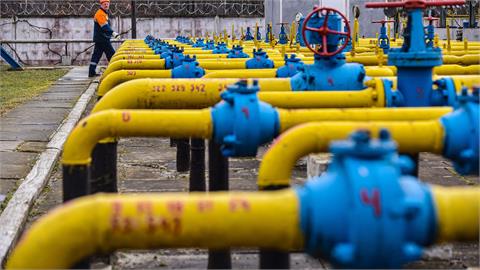The Bulgarian parliament abandoned its intention to ban the import of Russian oil by the end of this year and decided that this should happen by the end of October 2024.
On Wednesday evening, the economic committee in the parliament decided that Lukoil Neftochim Burgas – the largest oil refinery in the Balkans – will receive a new extended schedule for renouncing Russian oil.
By 31 March 2024, Russian oil processed by the refinery must be no more than 75%. On Thursday, the National Assembly finalised the schedule according to which “Lukoil Neftochim” should gradually switch to working with non-Russian oil.
“In the last year, we have seen that there is no preparation on the part of Lukoil Neftochim Burgas for the transition of non-Russian oil. With shorter transition times for non-Russian oil, there is a risk of a significant increase in fuel prices, speculation and even fuel shortages,” Economy Minister Bogdan Bogdanov said on Wednesday.
In the middle of the year, the quantities of Russian oil should be at most 50%, by 30 September, they should be below 25%, and after 31 October, only non-Russian oil should be processed. The European derogation expires just two months later.
The Customs Agency will monitor the implementation of this plan and inform the Ministry of Finance about the progress. The state can observe this process because it regained control over the Rosenets oil port near Burgas.
For two months, the refinery in Burgas was uncertain due to the pressure of deputies from the ruling majority for a quick withdrawal from Russian crude oil, among which Delyan Dobrev from GERB played the role of a “hawk”.
Last week, Lukoil Neftochim announced that the premature refusal of Russian oil imports threatens the stability of the work of the largest refinery in the Balkans and creates risks in the fuel market in the country.
The company noted that postponing the Russian oil import ban allowed Lukoil Neftochim Burgas to offer the cheapest fuels in the EU.
The Russian company claims to have developed a plan for a timely, phased transition to alternative sources of crude oil other than Russian.
He stated that providing alternative quantities of oil is not a problem, but transporting them to Rosenets port through the busy straits is a problem.
According to Euractiv’s sources, in a secret report presented to the Security Council of the government, the State Agency for National Security (SANS) predicts that if the derogation received by Bulgaria for the import of Russian crude oil by sea is abolished, the fuel will become more expensive by 20-25 cents per litre.
For the last month, they have already registered a significant increase – propane-butane by over 35% per litre, diesel and gasoline came close to the threshold of €1.5 per litre.
The report presented by counter-intelligence has alarmed the authorities. Government and special services have discussed the potential effects if the derogation is prematurely terminated. The forecasts are that the result will be an increase in fuel prices by at least 20 to 25 cents per litre.
For this reason, Prime Minister Nikolay Denkov has spoken out against any drastic moves against Lukoil to not create additional mistrust of the government.
Euractiv learned that the SANS report also mentioned a loan of nearly $800 million granted by Litasco to its subsidiary Lukoil Neftochim Burgas.
Most of it has been repaid, but in the event of an end to the waiver, the creditor could declare the remaining $300 million in default and bankrupt the refinery. Its eventual suspension will cause tremors in the fuel market in Bulgaria and North Macedonia.
(Euractiv.com, September 29, 2023)



